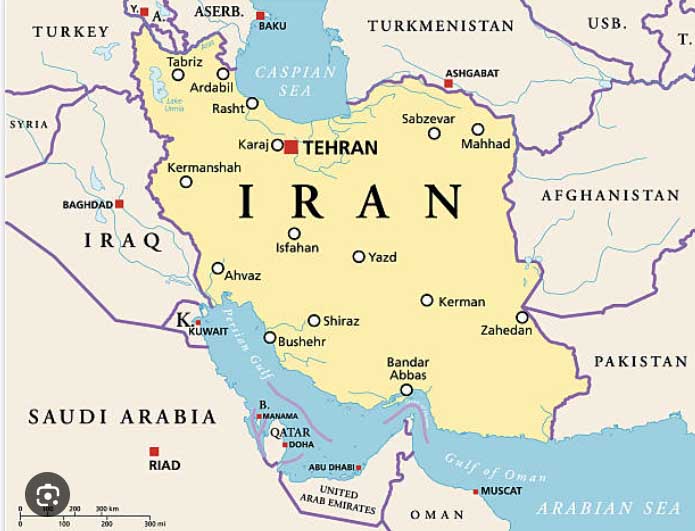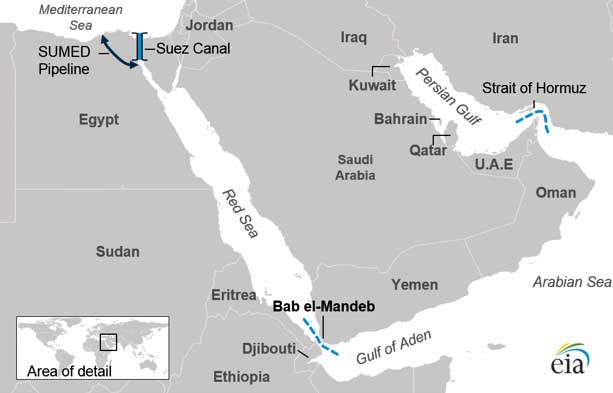Right. Sure guys. Persistent campaigns to deliberately manipulate people’s minds using mass media has no effect on their decisions at all. I guess that’s why that whole “advertising” fad never made any money – Caitlin Johnstone
A drum I’ve been banging full many a year is that “our” opinions are not only profoundly shaped by the agendas of power as projected in ways gross and subtle by, inter alia, 1 corporate media, but that such opinion manufacture is effected more by omission than commission. 2
Agenda setting? Not only do those media tell us what to think. They tell us what to think about. Consider how, with the propaganda blitz on Syria at its most intense, otherwise savvy people ran around bleating empire talking points on “Assad’s barrel bombs” – crude toys at side of US depleted uranium and Israel’s white phosphorous. Or how we are invited to an orgy of fury over Glastonbury rappers – and not trouble our heads with the war criminals they targeted.

IDF take time out in Gaza. Do you suppose they brought the bikes with them?
And so to Iran. What images come to mind? Public hangings? Religious goons forcing women to dress ‘chastely’? That’s not accidental. Nor is the fact our attention is diverted from a civilisation older than the one I was raised in, and from colonial meddling which (rinse and repeat in Arabia balkanised) installed a puppet shah, then defenestrated a prime minister elected on a platform of nationalising Anglo-Persian Oil, now better known as British Petroleum …
… diverted too from the present day reality that Iran, to an extent greater even than the region at large, is a hotspot due not only to the black stuff but by virtue of the geopolitical significance of a country which straddles Eurasia’s arterial north-south routes linking Russia via Caspian Sea to the Persian Gulf. By virtue too of its east-west position on a New Silk Road connecting China to Central Asia and Europe in ways less vulnerable to disruption by a hostile power choking the sea lanes. Last but not least by virtue of Iran’s command of the Strait of Hormuz, through which most of China’s oil passes, and on which the oil revenues of US-pliant but increasingly nervous Arab autocracies depend. 3

Cutting to the chase, Iran is:
- Central to the fears of five centuries of colonial strategists, first European then American, of a Eurasia uniting to challenge Western rule of the planet. 4
- The soft underbelly of a Russia recovered from the disastrous Yeltsin years and, despite fighting an existential war on its western flank – indeed, in part consequence of the same – now the world’s 4th economy. As such, Moscow cannot allow Tehran to go the way of Baghdad, Tripoli and Damascus.
- Vital, for reasons already given, to China. As such, Beijing cannot allow Tehran to go the way of Baghdad, Tripoli and Damascus.
- Uniquely placed to close the Hormuz Strait south of Bandar Abbas, 5 to throw the global economy into a slump deeper than even the oldest among us have ever experienced.

For these reasons the attacks on Iran – in which Israel is a US proxy: not, as many say, the tail wagging the dog 6 – bring at least four nuclear powers, with Pakistan a fifth, 7 palpably closer to direct confrontation for reasons far removed from that of a “rogue state” wanting nukes. 8
But you wouldn’t know any of this, would you, from our beautifully independent media and the spaces they dare not enter; the conversations they dare not open up?
The next post in this series will continue to focus on Iran, and the implications, scarcely touched on here, of that failed regime change attempt on June 13.
* * *
- Corporate news media aren’t the only molders of opinion in ways friendly to ruling elites. Other agencies do similar work, also in ways gross or subtle. From education to arts and entertainment, from organised religion to “common sense” understandings of the world, our views are shaped cradle to grave. How on earth could it be otherwise? We are social but individuated animals whose systems of law, morality, etiquette and myth serve with mixed success to manage tensions arising from our dual nature as ‘we’ and ‘me’. But our society is marked by class in the oppositional sense, with the dominant ideas of any age those of its rulers. And no ruling class since class began some 14,000 years ago – when a hundred millennia of hunter-gatherer subsistence gave way to farming, reliable surpluses and the restless question of their divvying up – has had such powers of mass persuasion as those enjoyed by 21st century elites; a truth I’ll revisit later in this series when I turn to America’s ongoing colonisation, even as its relative military and dollar dominance wane, of other countries’ information space.
- One way of showing the distorting power of omission is to invoke the proverbial Martian who, asking what a hospital is for, is told it’s a place where earthlings have their arms and legs sawn off.
- The mere threat, veiled or overt, of Hormuz closure is enough to send spot prices soaring. While the US is energy sufficient, the countries which make up its sprawling supply chains – courtesy its five decades of offshoring industry – are not.
- On the eve of Russia’s SMO of February 2022, in Eurasia’s rise is unstoppable, I quoted extensively from a piece by University of Wisconsin historian, Professor Alfred McCoy. In Eurasia’s Ring of Fire: the Epic Struggle Over the Epicenter of U.S. Global Power, he charts how empires from the Portuguese and Spanish through the British to the American feared the very Eurasian unity an increasingly flailing US has, since the fall of the USSR, in Greek tragedian style inadvertently advanced.
- If US, UK, Israeli and Saudi bombers can’t unlock Ansar Allah’s selective blockade of Bab al-Mandeb, Red Sea and Suez – and clearly they can’t – how would the West deal with an Iran pushed into the economically ‘nuclear’ option of closing Hormuz?
- Those who say Israel rules the US are not all antisemites. Some, like John Mearsheimer, I take seriously despite seeing them as wrong on this matter while another is Jeffrey Sachs, an outstanding Jewish analyst. And, it must be conceded, Brian Berletic’s formulation …
When people tell me Israel controls the US, I ask how. They tell me AIPAC. But the arms industry spends far more. So do the Banks, Big Pharma, Big Agriculture. A cartel of industries fund think tanks producing papers which become policies and bills that the media sell to the American people. That’s how it works and the Israel lobbyists are a tiny fraction of that. if Israel truly controlled the US, all its forces would be in the Middle East. But they’re also in Ukraine and South Asia because the US is waging proxy war in all three.
… blurs the fact of an Israel lobby embedded in Banks, Big Pharma, Big Agri etc, making the distinction less tidy than Brian implies. No one should doubt the power of the lobby but, and this is the point, no one should doubt either that this power derives in the last analysis from the alignment, for reasons given here and here, of US deep state agendas with those of a Greater Israel. The ‘Jewish State’ has every reason to fear that, should this alignment weaken for any reason, its viability as an ethno-supremacist entity will cease. Such is the recurring nightmare – ask Ian Paisley – of settler colonies down the ages: of being cut loose before they are ready, which for Israel is never, by the mother ship.
- In another case of media omission (and these need not be total when relegation to niche sources few will consult usually suffices) there’s a de facto blackout on Pakistan’s J-10 jet fighters – supplied by China at a third the cost of US F-16s it is in any case debarred from using against India – having outperformed the latter’s forces, on paper superior, in the recent Kashmir face-off.
- Not only does the region’s sole rogue state have nukes. And not only does it eschew IAEA and Non Proliferation Treaty alike. If Iran wants nuclear deterrence – crazy not to IMO – it’s to end once and for all Israel’s US-issued licence to wage criminal wars with impunity. A missile capability on show to traumatised Israelis in response to June 13, together with the prospect of a Hormuz closed by Iranian mines, saw Trump – misled by Netanyahu’s hubris into thinking Iran could be regime-changed by chutzpah, without drawing the US into its deadliest quagmire since Vietnam – back off. But few think the ceasefire can hold. Lightning decapitation failed but a rubicon was crossed, direct military force against Iran no longer off-limits in Beltway conversations. Regime change in Tehran is now of burning concern for Neocons who care nothing for Trump and his MAGA base. Given realities set out in broad brush forms that ignore powerful details, yes, but ultimately debarring either China or Russia from allowing said regime change, we are closer to the edge than any of our systemically compromised media are capable of acknowledging, far less holding the guilty to account.

“And no ruling class since class began some 14,000 years ago – when a hundred millennia of hunter-gatherer subsistence gave way to farming . . . ”
A useful antidote to the idea of farming inevitably leading to class structure, leading to inevitable inequality (not that you said that those are inevitable) is ‘The Dawn of Everything’ by D. Graeber and D. Wengrow. who use archeological and other evidence to show that quite a number of anarchic or egalitarian societies evolved and existed for thousands of years and up until quite recently.
That’s interesting Jams. Certainly farming generated reliable (as opposed to windfall) surpluses to enable class society. But did that always and everywhere ensure it? Your source suggests not, and I haven’t the depth of knowledge to say different.